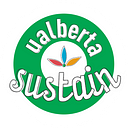Hope, curiosity and an enthusiasm for learning
Conservation biologist Colleen St. Clair shares what she loves about teaching BIOL 367.
By Jenna Bell
Conservation biology is a discipline that aims to protect and restore the Earth’s biodiversity. It is a vital field of study — now more than ever. But it can also be a heavy topic to discuss as the rate of extinction continues to accelerate. University of Alberta professor Colleen St. Clair grabs the attention of students with her passion for protecting wildlife and inspires them with hopeful outlooks for the future.
A past student, Pat Makhacheva, describes St. Clair as “the person who single-handedly got me interested in ecology and actually feeling optimistic about the future of conservation biology, and the potential I have to make change.” BIOL 367 is definitely a Certificate in Sustainability class worth taking.
What does sustainability mean to you?
Sustainability is a popular word because it can mean so many things. I try to think of it as being a conscious, consistent effort to reduce our ecological footprint. To better appreciate how our choices affect the rest of biodiversity and move in a direction that steps more lightly on the earth’s resources.
Tell me a bit about your approach to teaching BIOL 367?
I try to enthuse students about the topics in this course. Conservation biology can be a little depressing. Over the years I’ve tried to move away from just describing “doom and gloom” scenarios. I still cover those topics, but now I try to include more emphasis on ways that they can be addressed and solutions for the future. I really try to help them develop a personal connection and foster a personal interest in issues related to conservation biology that they will take away after the course is over. And if they choose to go on to advocate for conservation issues, they will hopefully do that from a basis in evidence and logic.
Coffee or tea?
I would say both at different times. Coffee in the mornings, and tea in the evenings.
What are the most important messages from this course that you want your students to take away?
Something that is more important than any material from the course to me is the way I might influence the way people think. The combination of open mindedness, critical evaluation of evidence, use of logic and an empowerment to approach all unknowns that way in the future. That would be my top hope. And in terms of more content-related things, I would like to leave students with a sense of hopefulness and the value of action. It’s just a nicer way to live to think that it is possible to push on a very large wheel and make positive changes, even if they’re small and local — cumulatively they will add up.
Why do you think that students should pursue the Certificate in Sustainability?
If people choose to approach their own interest in sustainability through a certificate, I think it has a lot of positives that can give them a clear sense of their purpose and goals. It can expose them to all kinds of ideas, activities and sources of information that are relevant to that goal. And maybe most importantly, it can give them a community of people that feel similarly and give them friendships that last their whole lives.
I think that’s one of the greatest riches of an undergraduate degree — discovering people who help you identify your own sense of purpose and your own career trajectory, and remain companions on that road for decades to come.
Would you rather live by the ocean or the mountains?
Well I think I would say mountains earlier in my life, but now that my knees are giving out I would say ocean.
Students love finding out what their instructors are researching. What is an exciting project you have on the go, or coming up?
What my grad students and I try to figure out are ways we could better understand and use animal behavior to increase the capacity for humans and other species to coexist.We’re conducting a project right now in collaboration with the city of Edmonton. We’re using remote cameras to study how wildlife uses the city, and we’re pairing that with a long term study that describes urban coyotes. This is to gain a better sense of how well the distribution of coyotes reflects on the habitat use of other species. Both of those projects involve some opportunities for people to volunteer in the lab — doing exciting things like collecting coyote scat and looking through remote photographs. We’re continuing to do that even through the COVID shut down.
This interview has been edited for clarity and length.
